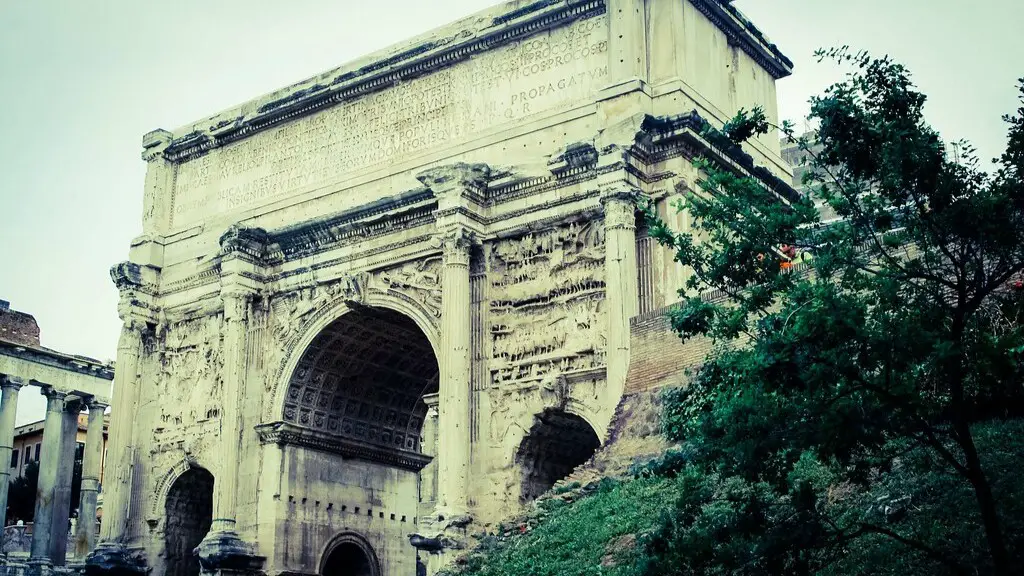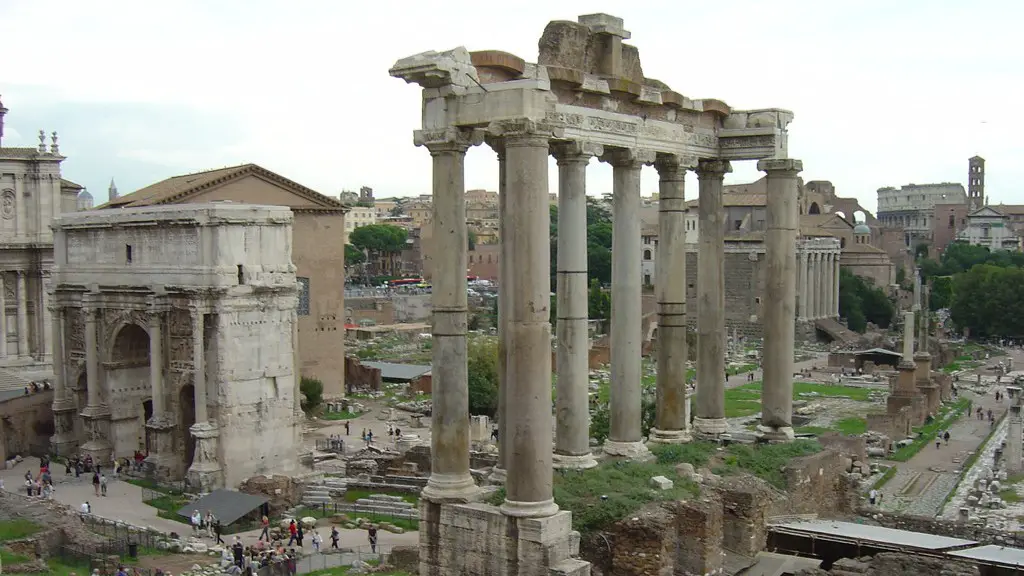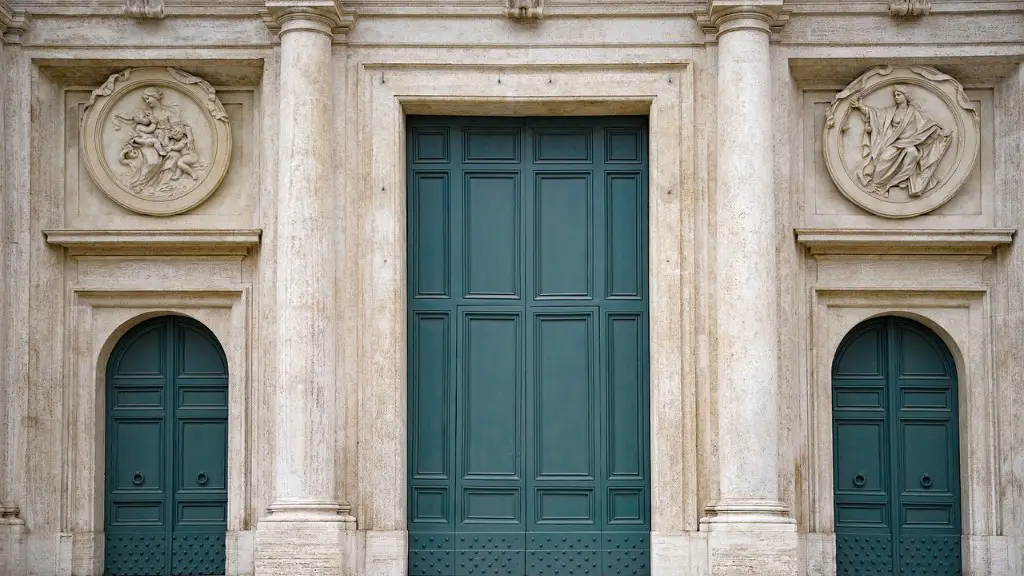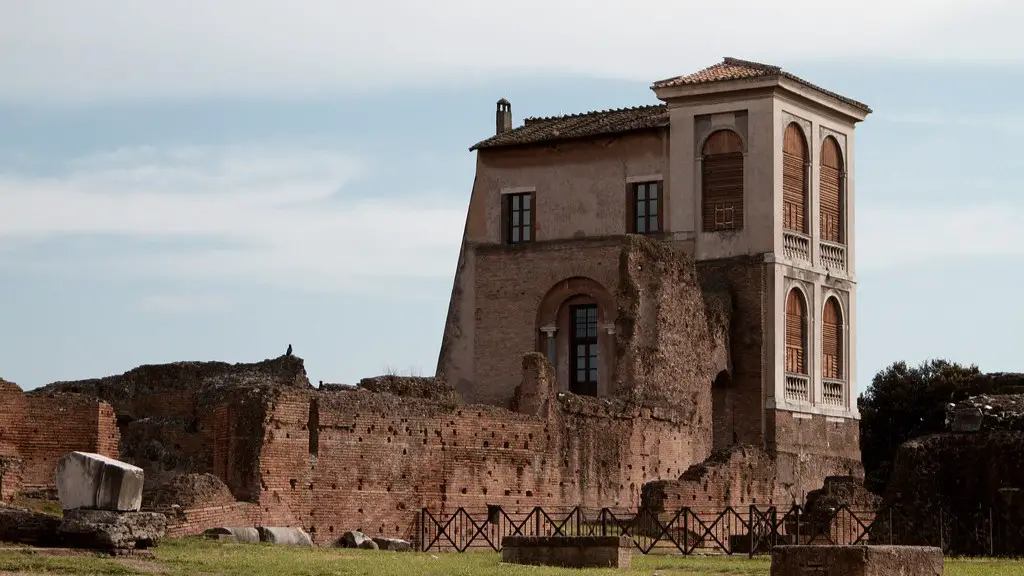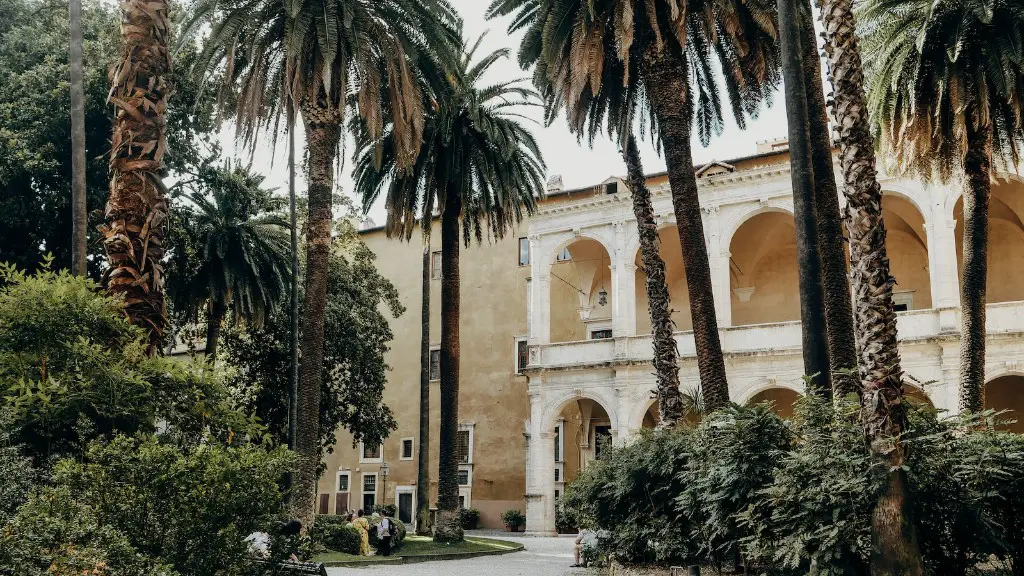The study of Ancient Rome is vital to understanding the history of Western civilisation and its relevance to the present day. As one of the world’s oldest civilisations and a major world power for centuries, its origins and progress, its people, its laws, and its language are essential to understanding our modern world. To understand the history and culture of Rome, the centralised government, forms of governance, economic development, and its impact on the modern world, we must look to Rome.
Ancient Rome is best known for its vast empire, many accomplishments and its long legacy. As a major centre of culture and learning, the city of Rome was the birthplace of monumental architecture, engineering, literature and art. Its architectural monuments, such as the Colosseum, remain some of the most well-preserved relics of Ancient Rome. Rome also acted as a major trading centre, connecting the Mediterranean and its surrounding countries. Over the course of centuries, Rome developed its sophisticated system of law and politics, which gave rise to a form of government that is still practiced today.
The Roman Republic and Empire, which lasted from around 500 B.C. until 476 A.D., laid the foundations for a number of concepts that are still integral to our society today. In its legal system, Roman law became the basis for many of our modern laws, including the concept of habeas corpus, trial by jury, and the basis for constitutional government. In terms of literature and rhetoric, Roman authors shaped the literary and political culture of Europe and beyond. Latin, the language of Roman citizens, became the language of the church and the basis of many modern European languages. Finally, Roman engineering and architecture has had a lasting impact on the buildings we see today.
Studying Ancient Rome gives us a better understanding of how our culture, government, and laws evolved over time. We can learn from the mistakes of the Roman Empire and discover how modern civilisations can prevent similar errors from occurring in the future. Furthermore, looking at contemporary events from an ancient Roman perspective can provide different lenses with which to interpret modern events, allowing us to understand more about the present and the future.
For those with an interest in history and culture, researching Ancient Rome can give you a deeper insight and appreciation for the society we live in. Not only does it serve to broaden our knowledge, but it can also give us inspiration for how we can change the world for the better. Ultimately, the study of Ancient Rome is a vital part of understanding where we came from, where we are now and where we will be going in the future.
Education & Culture
Ancient Rome was one of the earliest societies to embrace universal public education. Throughout its existence, the Roman Empire placed a large emphasis on the education of its citizens, offering a variety of educational disciplines and promoting a culture of intellectual curiosity and public engagement. Latin was taught as the language of choice in education, while the sciences, mathematics, and music were also heavily emphasized. Roman authors, architects and sculptors produced a great legacy of literature and art that still influences the world today. Through Roman education, students were afforded the opportunity to develop an open-minded, critical attitude towards life and the world.
Education was largely a public enterprise in Ancient Rome, and extended to all levels of society, from the highest ranks of society to those of lower ranking families. This led to a large population of educated citizens who could make informed decisions about their lives, leading to the development of a civilised and educated society. In addition, access to education was accompanied by a strong cultural identity and values, allowing the people of Rome to live harmoniously with each other.
Moreover, education was seen by the Roman government as an investment in its citizens and its future. By providing its citizens with the foundation of knowledge and cultural understanding, the Roman Empire ensured that it had the resources it needed in order to prevail in the long term. Education and cultural understanding were seen as two key components of successful rule.
As an example of the importance of culture and education in Ancient Rome, the citizens of Rome created a variety of schools and institutions to ensure that education and culture were kept alive. Some of these include the renowned schools at Tusculum, Pergamum, and Athens, which combined the study of languages, arts, and philosophy, among other fields.
Today, the study of Ancient Rome serves as an important reminder of the importance of education and culture in developing a civilised and enlightened society. Even as the world is growing ever more interconnected, it is essential to remember the legacy of Ancient Rome and strive to create a society where knowledge and culture are valued.
Influence on Modern Governance
The legacy of Ancient Rome is visible in a number of different facets of modern-day governance. From its legal system to its methods of communication and representation, Roman concepts and practices have made their way into contemporary societies. One example of this is the Roman Senate, an important organ of governance that continues to influence politics in the 21st century. Through the Senate, ancient Rome was able to ensure that laws were created to uphold the rights and welfare of its citizens, and to maintain a system of checks and balances between branches of government.
Roman law also served as the basis for many aspects of modern-day legal systems. Rome’s system of law was formed over centuries and was used to ensure fairness and justice among different classes of citizens. The concept of law as a means to ensure justice is still a concept implemented in contemporary legal systems. Personally, I see the Roman legal system as a foundation that enables us to see justice as an ideal, rather than simply an abstract concept.
The Roman language of Latin is also still influential in the modern world. Latin is used in academic, scientific and bureaucratic contexts, and many of the terms used in modern-day legal systems are rooted in Latin. Roman culture also continues to shape the way people think and perceive the world through the legacy of Latin phrases and authors such as Cicero and Virgil. In this way, Latin provides us with an insight into the way ancient Romans thought and assisted us in understanding the world.
The Roman Empire’s intelligence and efficient governance made it one of the most memorable civilisations in the history of mankind. Its accomplishments in engineering and science, as well as its use of Latin as a lingua franca, continue to shape the world in the present day. Ideas from Roman laws are still embedded in our legal systems, and the Latin language is still accounted for in many aspects of our lives. By understanding the legacy of the Roman Empire, we can empower ourselves to become more informed citizens of the world.
Economics & Trade
Trade was an integral part of Roman society, which allowed people to exchange goods and services with one another, generating wealth and increasing prosperity. The Roman Empire not only encouraged trade between its provinces, but also with other societies and regions. This enabled citizens to take advantage of different resources and opportunities to grow their wealth and meet their needs, such as access to food, medicine, and materials for manufacturing products.
Moreover, the Roman Empire was critical in the development of modern banking practices. In the time of Gracchus, banking institutions were established which enabled citizens to store their wealth securely in temples, as well as to take out loans with interest. This type of banking system allowed individuals to further invest in their businesses and increase their wealth, as well as providing credit to people who needed it.
The Roman Empire was also an important driving force behind the development of the world economy. Through its access to regional markets and its highly developed infrastructure, the Roman Empire facilitated the growth of trade and commerce throughout the Mediterranean. It led to an increase in mutual understanding and collaboration between societies, allowing for new ideas and technologies to be shared between different peoples.
Although the Roman Empire ultimately declined, the foundations of the Western economy, including the banking system and infrastructure, remain in place today. By understanding the role the Roman Empire played in the development of global trade and finance, we can more accurately understand the origin of our modern economic system and appreciate its impact on the global economy.
Architecture & Engineering
The Roman Empire had a profound impact on the field of architecture, engineering and urban development. Monumental construction, work on public infrastructure, and the establishment of cities were commonplace during the Roman Empire, who made use of their advanced concrete technology to construct monuments and edifices that remain impressive even today.
Perhaps the most iconic Roman achievement is the vast system of aqueducts that Roman engineers constructed throughout the Empire. These aqueducts allowed for fresh water to be transported from distant areas to cities, enabling a more extensive range of public facilities such as public baths, drinking fountains and public toilets. Roman engineers also developed methods of sewage disposal and waste management, ensuring that cities were kept clean and safe.
On the architectural front, the Romans developed the arch, which allowed them to construct large structures with support from only two points. This technology enabled them to construct structures such as the Colosseum, one of the most famous monuments in the world, as well as temples, libraries, and other monumental buildings. Roman architects also incorporated new techniques such as the use of open spaces to create harmonious and aesthetically pleasing buildings.
Rome gave us a lasting legacy of engineering and architectural technology that we still use today. The principles of architecture, engineering, and urban development that we see in modern cities were established by the Romans. The ability to create aesthetically pleasing and harmonious public spaces, as well as efficient urban infrastructure, are two of the many enduring legacies of the Roman Empire.
